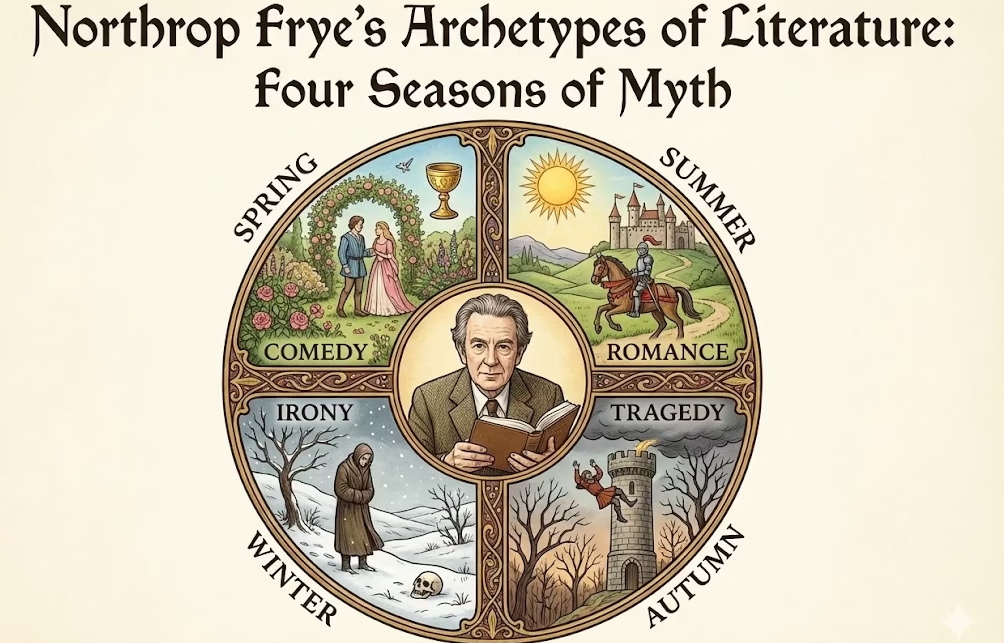INTRODUCTION:
Stepping into the labyrinth of Albert Camus’ The Outsider feels like waking up in a world where every expectation quietly dissolves. One moment, everything seems firmly anchored in logic and routine. The next, familiar patterns unravel into the utterly unforeseen. What makes Albert Camus’s The Outsider so compelling—especially for readers and scholars of absurdist theatre—is how it captures the universal feeling of estrangement. It explores that sensation of drifting through society, questioning whether meaning is inherent or simply constructed to fend off uncertainty.
Albert Camus does not simply present alienation as an abstract idea. His characters live it. They breathe it, stumble through it, and embody its paradoxes with a mix of poignant humour and vulnerability. In Albert Camus’s The Outsider, we encounter figures who defy conformity. They wrestle with the slow, creeping pressure of mass opinion. At the same time, they endure the quiet agony of solitude. Their struggles are both funny and unsettling. These moments prompt us to reflect: in a world that is always changing, can individuality survive without becoming a burden? Readers—students, educators, or anyone who has ever felt like an outsider—are invited to explore Albert Camus’s The Outsider and discover how absurdity, when expressed at its deepest level, reveals often hidden truths.
Albert Camus’s The Outsider: Historical and Literary Context
To discuss Ionesco as “the outsider”, it helps to reflect on postwar European anxiety. Ionesco’s plays emerged as the world grappled with dislocation, loss, and the collapse of old certainties. Rooted in absurdism, his protagonists—like those in “The Chairs” or “Rhinoceros”—embody outsiders trapped by routine, struggling to make sense of a reality whose very structure comes undone within the play’s lines.
Historical Roots: Absurdism arises from a crisis in meaning during the mid-20th century, entwining philosophical scepticism and theatrical innovation.
Literary Influences: Albert Camus’s outsider figures are linked to Camus’ L’Étranger but differ in tone—where Camus’ Mersault is passively distant, Albert Camus’s creations fight, echo, and sometimes laugh at the void. FULL TEXT
Albert Camus’s The Outsider: Themes
Absurdity isn’t just a device; it is a form of existential honesty. In works like “The Chairs”, language becomes noise, social bonds unravel, and each character performs for an absent audience, deepening their sense of outsiderhood.
Identity Crisis: The characters, often unnamed or barely individuated, reveal alienation not only from others but also from themselves.
Communication Breakdown: Dialogue degenerates, leaving both audiences and characters adrift—a motif that resonates especially in urban Asian contexts, where multilingualism permeates daily life.
Alienation in Modern Life
Upon reflection, the world that Camus creates is not distinct from our own. It challenges us to recognise those moments when we, too, feel like strangers in familiar places. This could be in a crowded metro or a classroom full of masked faces. Perhaps you find yourself endlessly scrolling through updates, seeking connection but only finding repetition.
Absurdity as Survival: Language, Power, and the Outsider
Absurdity becomes a shield and a weapon. Ionesco’s critique of language is sharp—words once full are now empty. The outsider, in this setting, survives not by understanding but by adapting, parodying, or defying the script society expects.
Corrosive Social Roles: The outsider refuses definition, unsettling conventional labels and causing discomfort, much like academics working at the edge of disciplinary boundaries.
Power and Estrangement: Even when clothed in social power, Ionesco’s characters know they’re impostors; this realisation itself becomes a radical act.
The Outsider Within Society
Who hasn’t felt like an outsider at some gathering, unsure of the lingo or the implied codes? Ionesco’s plays dramatise this, stripping away pretences until we see that everyone is, in some sense, performing or searching—rarely finding.
Social Function and Alienation: Albert Camus believes that modern roles—worker, leader, even family—can foster, rather than heal, estrangement.
Universality of Outsiderhood: Loneliness and angst aren’t confined to any class, country, or era; watching Ionesco reminds global audiences in Delhi, Dhaka, Paris, and New York that the outsider experience is nearly universal.
Albert Camus’s The Outsider: Artistic Techniques
Staging and Form
Innovative Staging: Chairs are filled by nobody, speeches dissolve into babble, and props signify absence—a direct metaphor for the outsider status.
Metaphorical Devices: Echoes, repetition, contradiction, and failure to communicate evoke both comic and tragic dimensions. As an academic, it’s tempting to dissect each scene, but it’s just as instructive to sit quietly and let the absurdities work on your own insecurities.
Critical Reception
Thematic Legacy: Later playwrights, notably Harold Pinter, Tom Stoppard, and non-European dramatists, acknowledge the debt owed to Camus’s vision.
Challenges in Performance
Actor’s Dilemma: How does one convey emotional truth amid absurdity? Directors worldwide experiment with gesture, silence, and improvisation to solve this riddle—a challenge mirrored in academic writing itself.
Audience Engagement: Audiences vary: some laugh nervously, others grow restless, but nearly all leave changed—reminded that being an outsider may be unsettling, but it’s also deeply human. EXPLORE OTHER WORKS
Conclusion:
Albert Camus’s The Outsider remains a profound exploration of alienation, identity, and the struggle to find meaning amid chaos. This analysis has shown how Albert Camus’s absurdist theatre uses humour, paradox, and fragmented communication to reflect a reality that feels both intimately personal and universally unfamiliar. For readers, students, and educators alike, engaging with these themes offers a richer understanding of not just Camus’s work but the broader human condition marked by moments of disconnection and solitude. In a world perpetually in flux, recognising the outsider within ourselves may be unsettling—but through this recognition, Albert Camus invites us to glimpse the deeper truths that absurdity reveals. Ultimately, the play challenges us to question: how do we maintain our individuality without being overwhelmed by conformity, and is embracing the absurd a form of survival or surrender? This layered tension is what makes Albert Camus’s The Outsider enduringly relevant and thrilling to explore.
FAQs
Q1: What is Albert Camus’ The Outsider about?
Albert Camus’ The Outsider explores themes of alienation, identity crisis, and the complexities of human existence through absurdist techniques. The play emphasises the feeling of estrangement and questions the validity of logic, communication, and societal norms, positioning its characters as perpetual outsiders in a baffling world.
Q2: Why is Albert Camus considered an absurdist playwright?
Albert Camus is a central figure in the Theatre of the Absurd because his works challenge conventional narrative and rational dialogue, using repetition, illogical situations, and surreal humour to reflect existential anxieties and the search for meaning in modernity.
Q3: How does the play illustrate the concept of alienation?
Characters in The Outsider grapple with intense isolation—both physical and emotional. Unable to genuinely connect, they feel out of place, which mirrors the broader existential issues Camus sought to dramatise.
Q4: Is The Outsider connected to Albert Camus’s novel?
Despite thematic similarities like alienation and existential doubt, Albert Camus’s The Outsider is distinct from Albert Camus’s novel. While both works explore questions of meaning and estrangement, Albert Camus’s approach is theatrical, deeply rooted in the style of absurdist drama. In contrast, Camus’s treatment is more literary and philosophical, focusing on existential ideas through prose rather than stagecraft.





